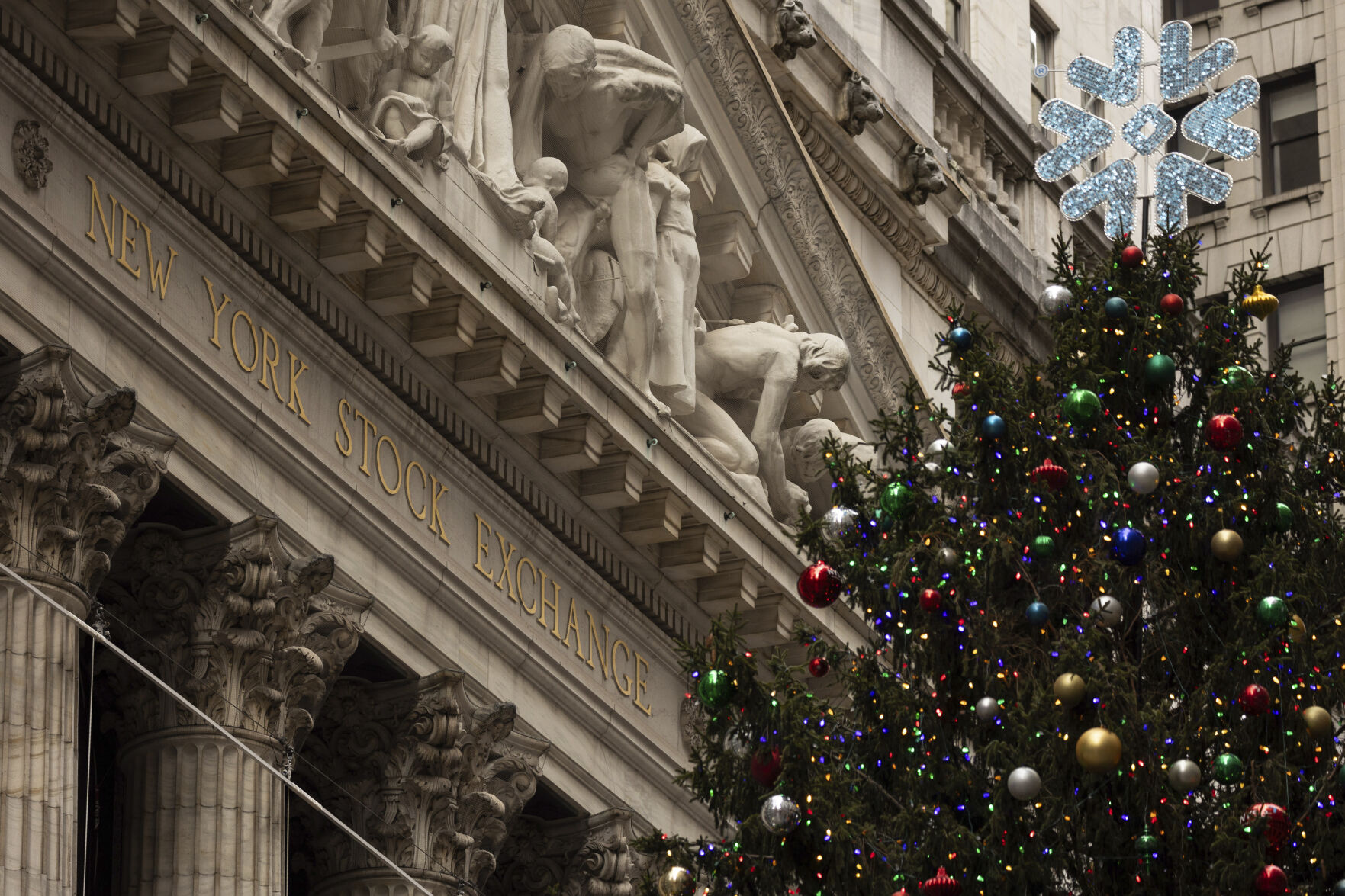NEW YORK — Wall Street is drifting Tuesday after a report showed inflation in the United States is behaving pretty much as expected.
The S&P 500 was virtually unchanged in morning trading, a day after hitting a 20-month high. The Dow Jones Industrial Average was up 76 points, or 0.2%, as of 10:30 a.m. Eastern time, and the Nasdaq composite was 0.1% higher.
Tech giant Oracle’s stock tumbled 10.5% after its revenue for the latest quarter fell short of analysts’ forecasts. Icosavax jumped 48.5% after AstraZeneca said it would buy the biopharmaceutical company for at least $838 million in cash, with the price tag rising if certain milestones are met.
But Wall Street’s spotlight was on the inflation report, which showed U.S. consumers paid prices for gasoline, food and other living costs last month that were 3.1% higher than a year earlier. That was a slight deceleration from October’s 3.2% inflation and exactly in line with economists’ expectations.
The data likely changes nothing about what the Federal Reserve will do at its latest meeting on interest rates, which ends Wednesday. The widespread expectation is still for the Fed to keep its main interest rate steady.
The Fed has already drastically yanked its main interest rate from virtually zero early last year to more than 5.25%, its highest level since 2001. It’s hoping to slow the economy and hurt investment prices by exactly the right amount: enough to stamp out high inflation but not so much that it causes a steep recession.
Recently rising hopes that the Fed can manage such an “immaculate” landing for the economy have helped stocks to rally and bets to rise that the Fed’s next move on interest rates will be to cut sometime in 2024, perhaps as early as March.
Cuts to interest rates can juice prices for stocks and other investments, while offering more oxygen for the overall economy and financial system.
Following the inflation report, traders added a handful of bets for a cut to happen by March, according to data from CME Group. But a minority are also still betting on the possibility that rates could stay high for longer than expected.
Seema Shah, chief global strategist at Principal Asset Management, pointed to a slight acceleration in inflation when looking at how prices changed from October into November rather than from a year earlier.
“Simply put,” she said, “this isn’t enough inflation deceleration to reassert or justify the market’s policy easing expectations,” particularly when the job market remains solid.
Other analysts and investors said they expect Fed Chair Jerome Powell to use the numbers to try to push back on traders’ growing conviction that rate cuts will come in the early part of 2024. Powell himself has already recently said it’s too early to consider when cuts could arrive.
In the bond market, Treasury yields were holding relatively steady following the inflation data. The 10-year Treasury yield slipped to 4.22% from 4.24% late Monday.
The two-year yield, which moves more on expectations for action from the Fed, held steady at 4.71%.
On Wall Street, Choice Hotels International fell 1.7% after it said it’s taking its buyout offer for Wyndham Hotels & Resorts directly to its rival’s shareholders. Choice already owns 1.5 million shares of Wyndham, whose board has cited concerns about value and regulatory approval while rebuffing Choice in the past.
Toymaker Hasbro fell 2.6% after it announced additional job cuts as part of its cost-cutting program.
On the winning side of Wall Street, Centene rose 4.4% for one of the biggest gains in the S&P 500. The managed care company gave a forecast for earnings in 2024 that topped analysts’ expectations, and it also authorized a program to buy back up to $4 billion more of its stock.
In stock markets abroad, indexes were holding relatively steady in Europe and mostly higher in Asia.
The FTSE 100 in London was 0.1% higher after the Office for National Statistics reported a sharp slowdown in growth for wages. That could help weigh on inflation and shape the Bank of England’s upcoming decision on interest rates Thursday.
Crude oil prices fell to take some more pressure off inflation. A barrel of benchmark U.S. crude lost 3.1% to $69.14. It had been above $93 in September but has been coming down amid worries about demand from the global economy failing to keep up with available supplies.
Brent crude, the international standard, fell 2.4% to $74.19 per barrel.


